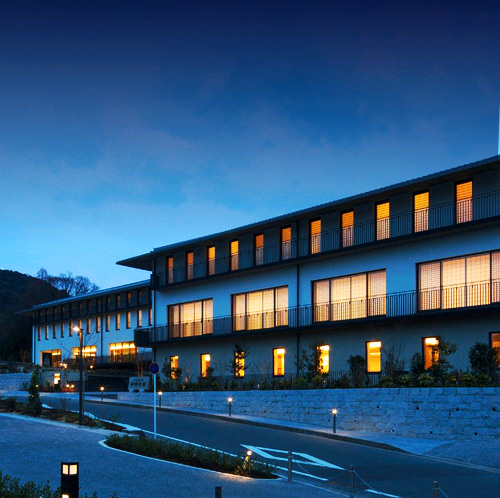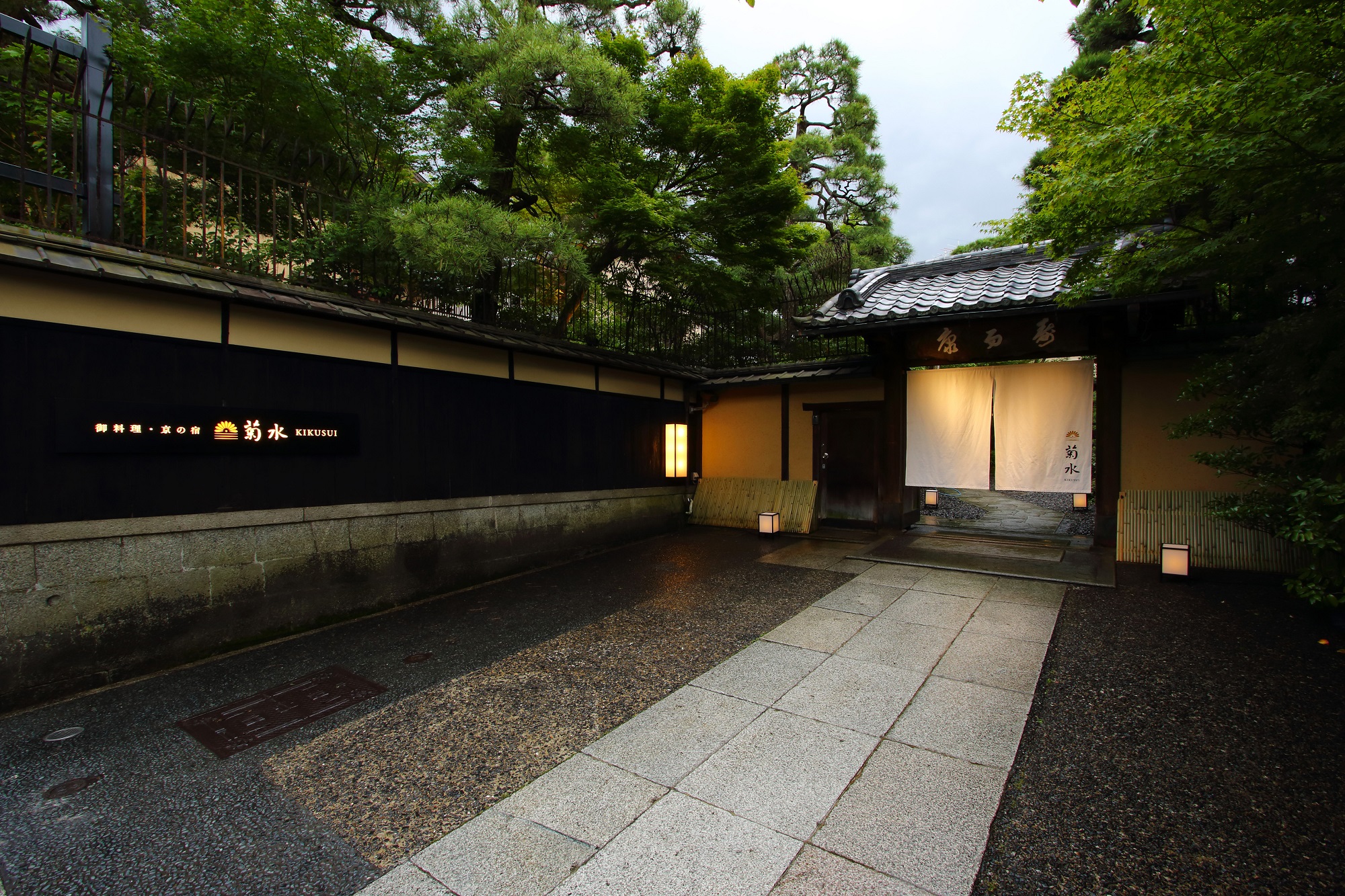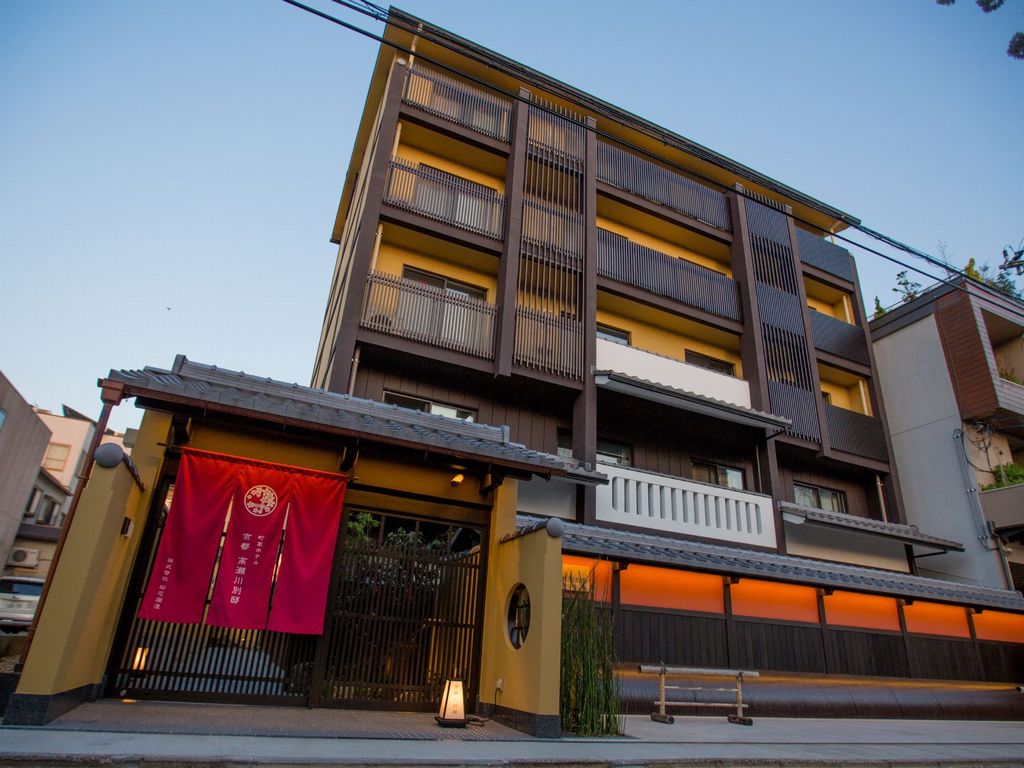
5 Kyoto Shukubo: Opt for a Temple Stay in Kyoto and Immerse Yourself in Tranquility
- Written by: Chehui Peh
In the heart of Japan's cultural capital, Kyoto, where ancient traditions harmonize with modern life, there exists a remarkable way to experience the city's rich heritage and find solace amid the hustle and bustle of tourism.
While Kyoto boasts a plethora of traditional ryokans and modern hotels, there's a hidden gem that offers a unique and immersive encounter with Japanese culture: temple stays.
(Main image: Booking.com)
- Table of Contents
-
- What are temple stays?
- Temple Stays in the heart of Kyoto City
- Venture Out of Kyoto City for a Unique Experience
- Bonus: Stay close to a Temple designated as a heritage site designed for tranquility
- How about a Kyoto temple stay for your next trip?
- Kyoto Temple Lodgings Full? Explore These Great Alternatives!
In this article, we'll take you on a journey through the world of temple stays, known as shukubo, in Kyoto, revealing the secrets of these sacred sanctuaries and sharing insights on how you can immerse yourself in the traditions, rituals, and Zen that define this unique accommodation option.
Whether you're a curious traveler or a seeker of enlightenment, temple stays in Kyoto promise an unforgettable adventure that transcends mere lodging, providing a rare opportunity to become a part of this heritage.
Here are five places to experience a temple stay, allowing yourself to unveil the hidden wonders of Kyoto’s spiritual retreats.
What are temple stays?
A temple stay, known as "shukubo" in Japanese, is a unique accommodation experience that allows visitors to immerse themselves in the traditions and tranquility of Buddhist temples.
Each temple offers a unique experience, ranging from smaller family-run establishments to those run by monasteries, but what they have in common is that they offer travelers a rare opportunity to step into the serene world of Japanese Buddhism, and encourage guests to embrace a slower pace of life, and disconnect from the outside world.
During a temple stay, guests are welcomed into the temple's grounds and provided with simple, comfortable accommodations with traditional Japanese furnishings such as tatami mat rooms and futon bedding.
Guests are also given the chance to participate in various spiritual activities and rituals, which may include meditation sessions and Buddhist prayers; for many, this extends to the food, where vegetarian temple cuisine known as shojin ryori is served for plans including meals.
- Temple stays do not necessarily offer WiFi. Be prepared to disconnect from the outside world and from the internet.
- Your day at a temple stay will start really early if you wish to partake in the morning rituals at the temple. Sleep early and have plenty of rest, as there will be a lot of activities you can opt in to.
- As you’ll be staying at a spiritual location, do note that obligatory quiet hours tend to start earlier at night out of respect to the other monks and guests in the same accommodation.
Temple Stays in the heart of Kyoto City
Chion-in Wajun Kaikan

Nestled within the hallowed precincts of Kyoto's Chion-in Temple, the Chion-in Wajun Kaikan temple stay offers a unique immersion into the heart of Japanese spirituality. You'll find yourself transported to a realm of serenity and reflection as you step through the main entrance, the Sanmon Gate, also the largest wooden temple gate in Japan dating back to the early 1600s. Chio-in Temple is the head temple of the Jodo sect of Buddhism, and its massive grounds and history will transport you from the hustle and bustle of Kyoto to the start of your experience.

The accommodation is modern and there is a public bath in the facility. Guests will be able to participate in centuries-old Buddhist rituals, including morning meditation and evening prayers, guided by the resident monks. The highlight, however, might just be dinner, where exquisite shojin ryori and kaiseki meals are served, giving guests an unforgettable savory taste of what is uniquely Kyoto - local ingredients with minimal seasoning to bring out the best of the natural flavors of ingredients.
Chioin Temple Wajun-Kaikan is also extremely convenient, located in the center of the city just a 5 minute walk away from Yasaka Shrine in the center of Gion, it’s the perfect place to start off your day with a morning Buddhist ritual before embarking on your exploration of Kyoto where the ancient meets the contemporary.
Languages supported: English, Japanese
-
 Chion-In Wajun Kaikan知恩院 和順会館
Chion-In Wajun Kaikan知恩院 和順会館- Address 400-2 Rinkacho, Higashiyama-ku, Kyoto-shi, Kyoto View Map
- Original source: Rakuten Travel
Daisenji Lodge-ing

Located a short walk from the Imperial Palace and Kamo River is Daisenji Lodge-ing. These two temple stays are categorized by color, with an AI (blue) and AKA (red). A machiya (townhouse) dating back to the Taisho era, these lodges were renovated in 2018 to blend the contemporary with the historical, with Japanese aesthetics in mind. The red building is painted a beautiful red, with little photogenic elements such as a dragon adorned onto a shoji screen, a kotatsu (table over an electric heater that is frequently depicted in popular media as the place to end all productivity during the cold winter months), and decorative ridge-end roof tiles from the temple in the courtyard. Whereas the blue lodge has beautiful Japanese-esque wallpapers with blue-themed flower aesthetics and a beautiful Japanese garden.

Run by the chief priest of Daisenji, a temple that dates back to the 1500s, It’s a no-frills accommodation perfect for those who want to have a taste of a temple stay, whilst incorporating all of the conveniences of modern comfort, such as a washer and dryer, bicycle rentals on site, as well as WiFi and games, great for solo travelers, groups, or families traveling together. Do note that they do not provide toothbrushes, and you will have to bring your own. Looking for something simple to begin your foray into temple stays? You won’t go wrong here.
Languages supported: English, Japanese, Chinese
-
 Daisenji Lodge IngDaisenji Lodge Ing
Daisenji Lodge IngDaisenji Lodge Ing- Address Kamigyo-ku, Morinokicho 475-2, Kyoto, Kyoto View Map
- Original source: Booking.com
Vacancy search, reservation
-
from 15,750JPY 1room, 2adults
Check with our partner site as the latest rates, rate details, and guest room requirements may vary.
Venture Out of Kyoto City for a Unique Experience
Kaizouji Oumi

A picturesque fishing village located on the northern coast of Kyoto prefecture, Ine is renowned for its unique and charming traditional houses, known as funaya (boat houses), a preservation district for historic buildings that give a glimpse into Japan’s coastal heritage. Kaizouji, located in the town of Ine, is a temple famous for its iconic solo cherry blossom tree.

Upon entering Oumi, you’ll be greeted by the head priest, known for his love for fun and speaking with guests. Unlike other temple stays, they ask that you refrain from requesting a rigorous temple experience, as this isn’t aligned with the head priest’s temperament, however they are always happy to accommodate meditation, prayer, and sutra writing experiences. Children are also highly welcome. Regardless of what you’re looking for in this stay, guests can opt to recite sutra with the head priest every morning at 6 AM for that extra experience. Meals are an elegant affair, featuring shojin ryori, but only if reserved beforehand. To add to the experience, you’ll be given samue, working clothes that monks wear in everyday life for pajamas and also for use during morning prayers.

With its unique location and an interesting concept, this temple stay books up quickly, so make reservations as early as you can. Oumi is definitely a hidden gem that offers a peaceful and charming retreat from the bustling city.
Languages supported: English, Japanese
-
 海蔵寺 宿坊 櫻海海蔵寺 宿坊 櫻海
海蔵寺 宿坊 櫻海海蔵寺 宿坊 櫻海- Address 平田102, Ine, Kyoto View Map
- Original source: Booking.com
Vacancy search, reservation
-
from 30,000JPY 1room, 2adults
Check with our partner site as the latest rates, rate details, and guest room requirements may vary.
Temple Hotel Shoureki-ji

For a luxurious temple stay experience outside of busy Kyoto city, look no further than Temple Hotel Shoureki-ji in Ayabe, Kyoto, which beckons travelers to a world of timeless tranquility and cultural immersion. This hidden gem, nestled within a 1000-year-old temple complex, offers a truly authentic temple stay experience, limited to one group each night, guaranteeing total tranquility.

With the chief priest acting as your own personal concierge, what sets this place apart is the personal touch, where each stay is customized entirely to you. The wide array of activities on site range from experiences, such as meditating in a bamboo forest, zazen meditation beneath a 600-year-old tree, as well as temple experiences like ringing the evening bell, wearing a priest’s garments, testing musical instruments used in Buddhist memorial services, and making your own unique goshuin stamps. You can also learn about Buddhism and experience prayer rituals, including sutra copying, morning services, prayers, and also suigyo rinshin where cold water is used to purify ourselves seven times alongside the monks, where you will be brought into their daily routines.

Food here is also another incredible experience, cooking with local ingredients and providing a farm-to-table full course chicken meal for dinner, and a full Japanese breakfast. Meals here are focused on respecting the ingredient, and receiving the food each day with appreciation, embodying the Japanese utterance of itadakimasu before a meal. It’s the perfect place to have a full temple stay experience, from the activities to the meals and even its location, head here for something unique outside of central Kyoto.
Languages supported: English, Japanese
-
 Temple Hotel 正暦寺Temple Hotel 正暦寺
Temple Hotel 正暦寺Temple Hotel 正暦寺- Address 京都府綾部市寺町堂ノ前45, Ayabe, Kyoto View Map
- Original source: Booking.com
Vacancy search, reservation
-
from 132,500JPY 1room, 2adults
Check with our partner site as the latest rates, rate details, and guest room requirements may vary.
Bonus: Stay close to a Temple designated as a heritage site designed for tranquility
Nanzenji-Sando Kikusui

A luxurious ryokan limited to 5 groups a day, Kikusui is conveniently located along the pilgrimage road to Nanzenji in the Higashiyama area of Kyoto. Surrounded by beautiful mountains, this Zen Buddhist temple’s history dates back to the mid-13th century and is one of the best-known Rinzai Zen temples in Japan. Also known as one of the best spots in Kyoto to see the autumn leaves, drop by during autumn, even if you’re not opting for a stay, for a glimpse at the beautiful autumn foliage in the temple grounds.

Kikusui is centered around a beautiful Japanese garden designed by famed landscape designer Jihei Ogawa VII in the Meiji era (1868-1912), renowned for his work featuring rocks and water, and is known as a pioneer of the modern Japanese garden. This garden was inspired by the location at the edge of Nanzenji and the winds of a new Meiji era of modernization, and was initially the holiday home of a trader, built in 1895. Kikusui today aims to bring that ancient identity into the contemporary era, through its gorgeous tatami mat flooring and comfortable raised futon bedding, with all rooms facing the peaceful gardens whilst accented by Japanese art pieces to transform the room almost into a gallery in its own right.

The ryokan prides itself on being a Food Ryokan, with kaiseki meals blending elements of traditional Kyoto cuisine with western cuisine. Don’t forget to opt for a meal here, to get a taste of modern-day Kyoto. Although Kikusui is not a temple stay, its proximity to Nanzenji also means visitors can get there before the crowd floods in for the day, and offers a unique experience in the center of Kyoto city.
Languages supported: English, Japanese
-
 Nanzenji Sando Kikusui南禅寺参道 菊水
Nanzenji Sando Kikusui南禅寺参道 菊水- Address 31 Nanzenji Fukuchicho, Sakyo-ku, Kyoto-shi, Kyoto View Map
- Original source: Rakuten Travel
How about a Kyoto temple stay for your next trip?
Temple stays are more than an accommodation option. They're an unforgettable experience, a glimpse into a spiritual retreat, a world that we normally wouldn't have access to. For those looking for options off the beaten path your next Kyoto trip, How about a temple stay?
Kyoto Temple Lodgings Full? Explore These Great Alternatives!
No luck finding a spot in a Kyoto temple? No problem! Kyoto is filled with other fantastic places to stay. We've picked out some of the city's best hotels with rave reviews for you to check out. And for those still seeking that unique spiritual retreat, the temple lodgings of Mount Koya are just a scenic train ride away and offer an unforgettable experience.
Top-Rated Hotels in Kyoto
-
 Kyonoyado Gekkoan京の宿 月光庵
Kyonoyado Gekkoan京の宿 月光庵- Address Nakagyo-ku Nishinokyo Nishigekkocho 18-20, Kyoto, Kyoto View Map
- Original source: Booking.com
Vacancy search, reservation
-
from 47,300JPY 1room, 2adults
Check with our partner site as the latest rates, rate details, and guest room requirements may vary.
-
 Kyoto Takasegawa Bettei京都 高瀬川別邸
Kyoto Takasegawa Bettei京都 高瀬川別邸- Address 196 Juzenjicho, Shimogyo-ku, Kyoto-shi, Kyoto View Map
- Original source: Rakuten Travel
Experience a Temple Stay on Mount Koya
-
 高野山 宿坊 恵光院 -Koyasan Syukubo Ekoin Temple-高野山 宿坊 恵光院 -Koyasan Syukubo Ekoin Temple-
高野山 宿坊 恵光院 -Koyasan Syukubo Ekoin Temple-高野山 宿坊 恵光院 -Koyasan Syukubo Ekoin Temple-- Address Koyasan 497, Koyasan, Wakayama View Map
- Original source: Booking.com
Vacancy search, reservation
-
from 50,000JPY 1room, 2adults
Check with our partner site as the latest rates, rate details, and guest room requirements may vary.
-
 Koyasan Shukubo Saizenin高野山 宿坊 西禅院
Koyasan Shukubo Saizenin高野山 宿坊 西禅院- Address Koyasan 154, Koyasan, Wakayama View Map
- Original source: Booking.com
Vacancy search, reservation
-
from 34,000JPY 1room, 2adults
Check with our partner site as the latest rates, rate details, and guest room requirements may vary.
Activities & tours that might interest you
-
 Traditional Tea Ceremony Experience in Kyoto
Traditional Tea Ceremony Experience in Kyoto
(Image: Klook) -
 Kyoto Kinkaku-ji & Ryoanji Rock Garden Small Group Walking Tour
Kyoto Kinkaku-ji & Ryoanji Rock Garden Small Group Walking Tour
(Image: Viator) -
 Kyoto: The Path Less Traveled (Private)
Kyoto: The Path Less Traveled (Private)
(Image: Viator) -
 Kyoto's Zen Gardens Bike Tour
Kyoto's Zen Gardens Bike Tour
(Image: Viator) -
 Zen Meditation for Life in Kyoto
Zen Meditation for Life in Kyoto
(Image: Viator) -
 Japanese Calligraphy Class in the center of Kyoto
Japanese Calligraphy Class in the center of Kyoto
(Image: Viator)
*This article has been rewritten as of June 2025 since its original posting in October 2023. Please check the official websites for the latest information.
With over 10 years of experience as a writer and marketer, Chehui writes extensively about travel, lifestyle, and food. Traveling is a part of her lifestyle, and she travels every chance she gets with the goal to explore all corners of Japan, no matter how difficult it is to get to. Graduated with a Masters of Anthropology from Waseda University and worked as a freelance journalist at Shanghai Daily for over 4 years, before branching out to travel journalism and contributing to Travel + Leisure and other renowned platforms. She holds certifications in Japanese Tea Ceremony, and Wine.
*Prices and options mentioned are subject to change.
*Unless stated otherwise, all prices include tax.
Popular Tours & Activitiess
Recommended places for you
-

Yodobashi Camera Multimedia Umeda Store
Shopping Malls
Umeda, Osaka Station, Kitashinchi
-

ISHIDAYA Hanare
Yakiniku
Kobe, Sannomiya, Kitano
-

Kanzenkoshitsuyakinikutabehodai Gyugyu Paradise Sannomiya
Yakiniku
Kobe, Sannomiya, Kitano
-
Goods

Yoshida Gennojo-Roho Kyoto Buddhist Altars
Gift Shops
Nijo Castle, Kyoto Imperial Palace
-

Kambei Sannomiyahonten
Yakiniku
Kobe, Sannomiya, Kitano
-

Jukuseiniku-to Namamottsuarera Nikubaru Italian Nikutaria Sannomiya
Izakaya
Kobe, Sannomiya, Kitano
-

Vintage Watch Hunting in Osaka (Umeda & Shinsaibashi): Rolex, Seiko, and Rare Finds
-
Ad

Earthquake in Kyoto? Typhoon? What To Do If Disaster Strikes During Your Stay
-
Ad

Iseshi Station: Gateway to Japan’s Sacred Heart and the Evolving Ise-Shima Region
-
Ad

From March 2026, Kyoto’s accommodation tax rate will change. What exactly is this tax used for?
-

Osaka's New Must-Have: Eki-Inki Station Stamps
by: Guest Contributor
-

February Events in Kansai: Fun Festivals, Food, and Things to Do in Kyoto & Osaka
-

Todai-ji Temple: Home to the Great Buddha of Nara - And a Nose Hole That Brings You Luck!?
by: WESTPLAN
-

Osaka Girl's Trip! Surprising Osaka Boutique Hotels to Visit with the Gals
-

Kiyomizu-dera Temple: Guide to Visiting Kyoto's Most Famous Sightseeing Spot
-

Popular Food at Universal Studios Japan
by: WESTPLAN
-

THE LIVELY Osaka Honmachi: This Cutting-Edge Dream Hotel Awaits You!
by: WESTPLAN
-

38 Best Things to Do in Kyoto: See, Eat, and Shop Your Way Through Japan's Cultural Capital
- #best gourmet Osaka
- #things to do Osaka
- #what to do in kyoto
- #what to bring to japan
- #best gourmet Kyoto
- #new years in Osaka
- #what to buy in nanba
- #Visiting Osaka
- #onsen tattoo friendly arima
- #daiso
- #Visiting Kyoto
- #best japanese soft drinks
- #japanese fashion culture
- #japanese convenience store snacks
- #japanese nail trends















